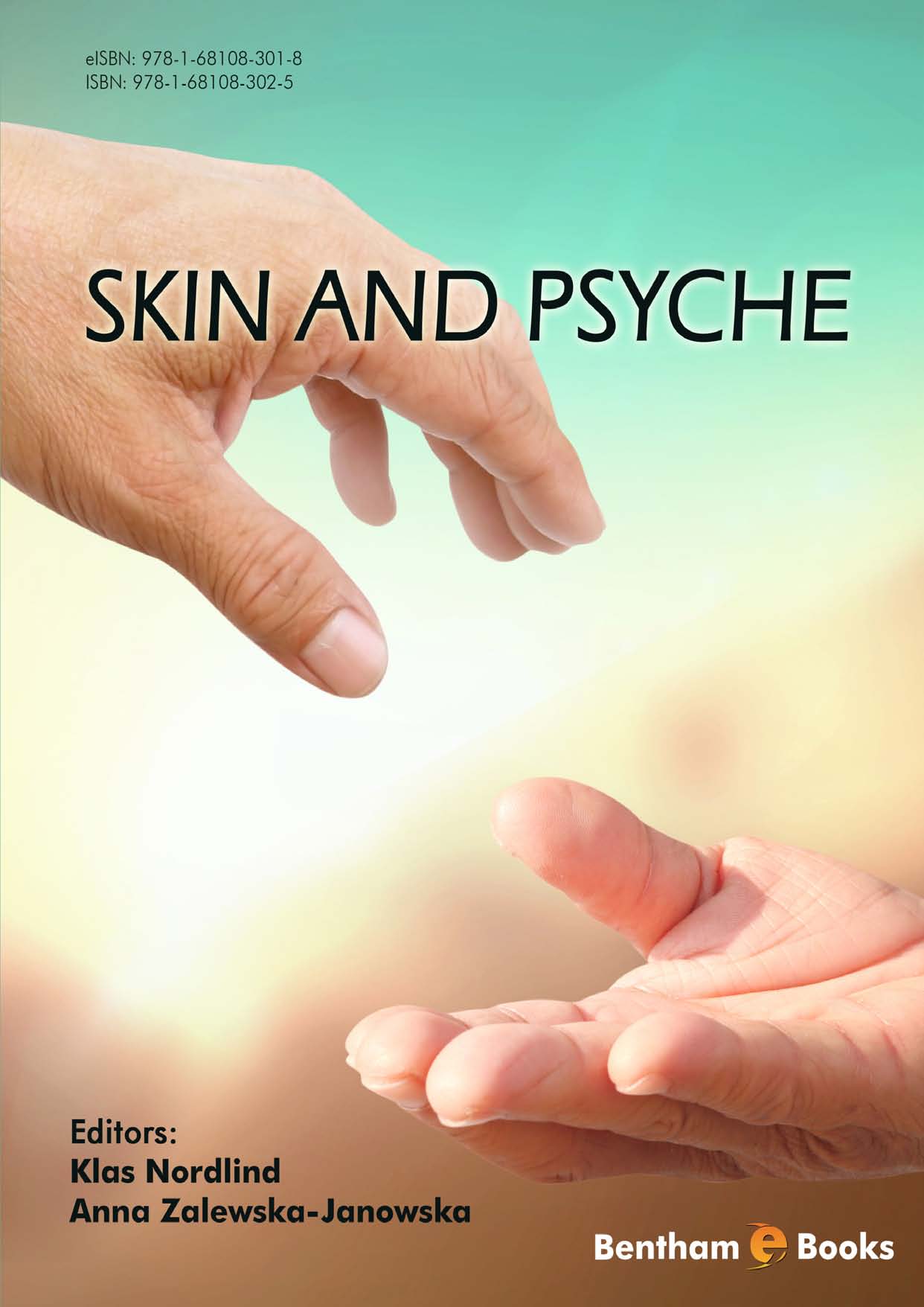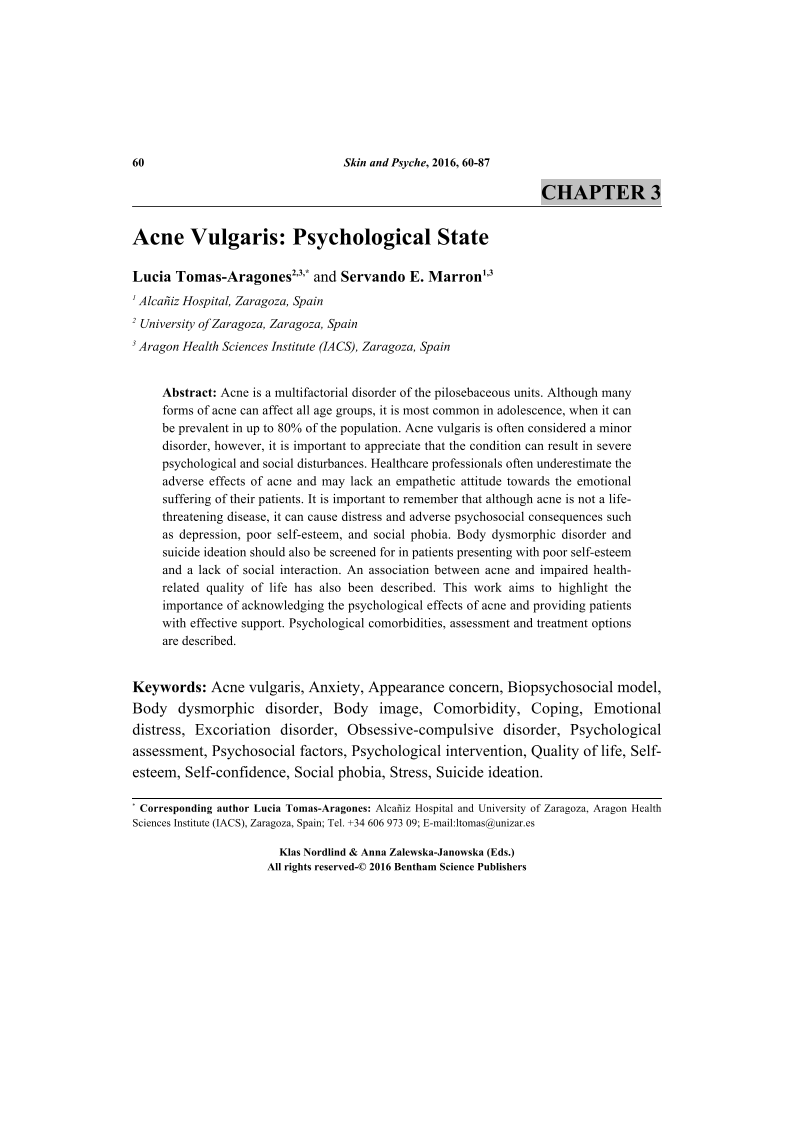Acne Vulgaris: Psychological State

- Authors: Lucia Tomas Aragones1, Servando E. Marron2
-
View Affiliations Hide Affiliations1 Alcaiz Hospital and University of Zaragoza, Aragon Health Sciences Institute (IACS), Zaragoza, Spain. 2 Alcaiz Hospital and University of Zaragoza, Aragon Health Sciences Institute (IACS), Zaragoza, Spain.
- Source: Skin and Psyche , pp 60-87
- Publication Date: October 2016
- Language: English
Acne Vulgaris: Psychological State, Page 1 of 1
< Previous page | Next page > /docserver/preview/fulltext/9781681083018/chapter-3-1.gif
Acne is a multifactorial disorder of the pilosebaceous units. Although many forms of acne can affect all age groups, it is most common in adolescence, when it can be prevalent in up to 80% of the population. Acne vulgaris is often considered a minor disorder, however, it is important to appreciate that the condition can result in severe psychological and social disturbances. Healthcare professionals often underestimate the adverse effects of acne and may lack an empathetic attitude towards the emotional suffering of their patients. It is important to remember that although acne is not a lifethreatening disease, it can cause distress and adverse psychosocial consequences such as depression, poor self-esteem, and social phobia. Body dysmorphic disorder and suicide ideation should also be screened for in patients presenting with poor self-esteem and a lack of social interaction. An association between acne and impaired healthrelated quality of life has also been described. This work aims to highlight the importance of acknowledging the psychological effects of acne and providing patients with effective support. Psychological comorbidities, assessment and treatment options are described.
-
From This Site
/content/books/9781681083018.chapter-3dcterms_subject,pub_keyword-contentType:Journal -contentType:Figure -contentType:Table -contentType:SupplementaryData105

